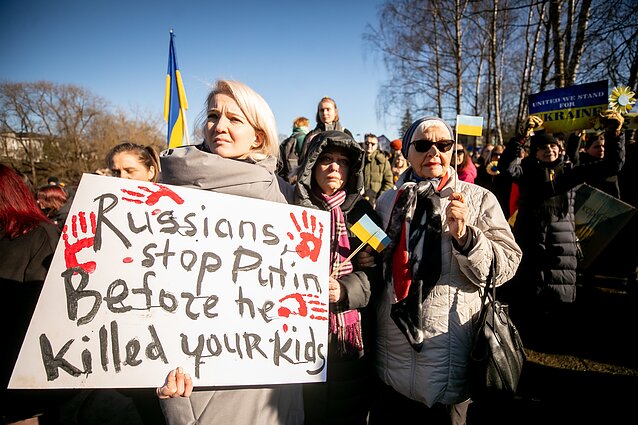Humans are created for bonding but when the other half is taken away while alive to support a course that is not ending soon, it is indeed a painful thing for the other half.
In Moscow, a growing movement of Russian women is actively advocating for the return of their husbands, sons, and brothers who have been serving on the front lines in Ukraine for over a year. This mobilisation was initiated following a decree by President Vladimir Putin in September of the previous year.
Initially expressing loyalty to the Kremlin’s termed “special military operation” (SVO), these women have become increasingly dissatisfied with what they perceive as inadequate responses from the authorities.
The wives, mothers, and sisters argue that the limited breaks granted to soldiers for family visits are insufficient, especially for those engaged in a prolonged conflict.
Maria Andreeva, whose husband has been deployed since last year, emphasises that their demand for demobilisation is not just about ensuring their children have fathers but also a fight for the stability of their marriages. Andreeva, 34, stated in an interview with Reuters in Moscow, “For me, it is not only a struggle to ensure that my daughter has a father, but it is also a struggle for my marriage.”
Addressing this movement poses a delicate challenge for the Kremlin, which has historically tolerated higher casualty rates compared to Western nations.
The increasing prominence of Russian women in this movement highlights the complexities and inherent inequalities of maintaining a prolonged military engagement, leaving many men at war while others of fighting age remain at home.
While it’s too early to assess the movement’s size and impact, it underscores the multifaceted nature of Russian society despite official claims of unity behind the war effort.
Similar sentiments have also been expressed by women in Ukraine, demanding the return of their men from the front.
When Putin initiated a partial mobilisation of 300,000 reservists in September 2022, hundreds of thousands of young men attempted to leave Russia.
However, many were called up to serve, with Russia subsequently recruiting hundreds of thousands of contract soldiers this year. Petitions from the women to bring their men back have gone largely unanswered, and the Russian defence ministry has not engaged with the movement.
The lack of a satisfactory response has led some women to reconsider their initially supportive stance, prompting shifts in their perceptions of the conflict.
Andreeva explained, “Our position at the start was: Yes, we understand why it is needed, we support it, we occupied a rather loyal position. But now the position – including mine – is changing because we see how we are being treated and how our husbands are being treated.”
Efforts by the women to organize protests were denied approval by the authorities, who accused them of being supported by Western-based dissidents and opposition parties—a claim without factual basis.
The women have found solace in their “Way Home” Telegram channel, which currently boasts 23,000 members.
In an interaction with lawmaker Vitaly Milonov, two women confronted him with direct questions about the return of their loved ones, challenging attempts to divert the conversation.
The women expressed concerns about the unequal burden of war, emphasising that while some in Moscow celebrate the festive season, soldiers endure harsh conditions on the front lines.
Andreeva summed up the sentiment, saying, “We have 1 percent of the population who are taking on the whole burden of the SVO at the front while the other 99% are preparing for New Year and having some fun. Having fun is not what is in stall for our boys or our families.”



